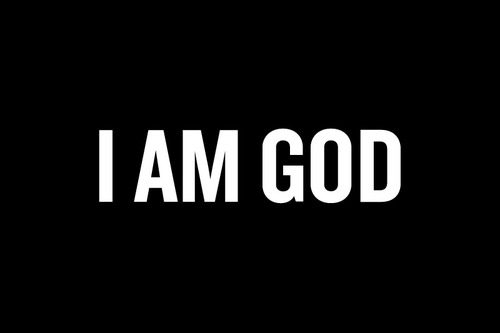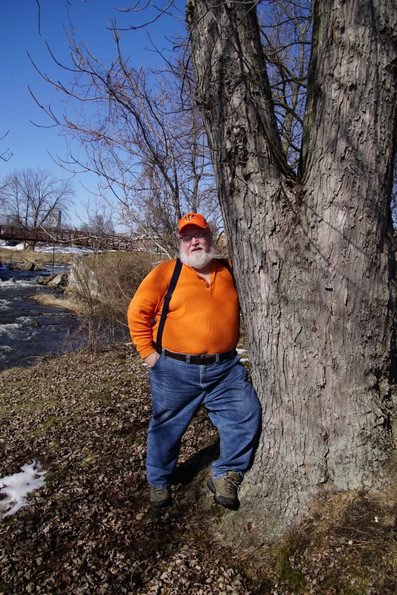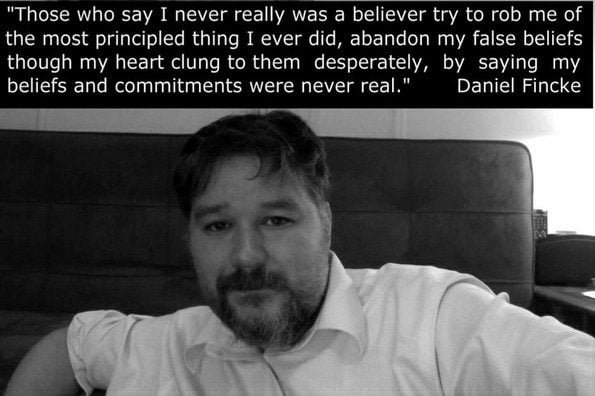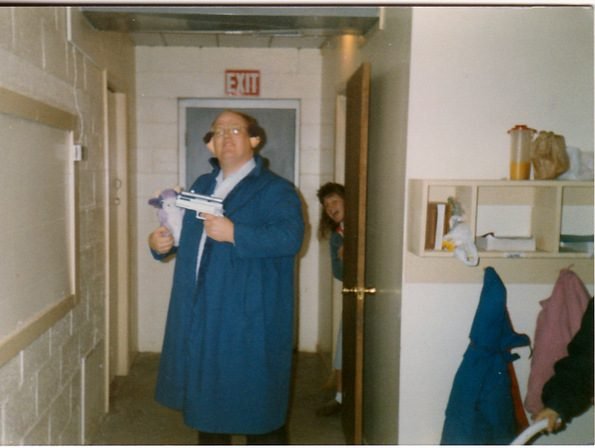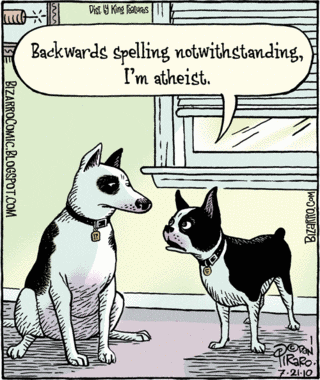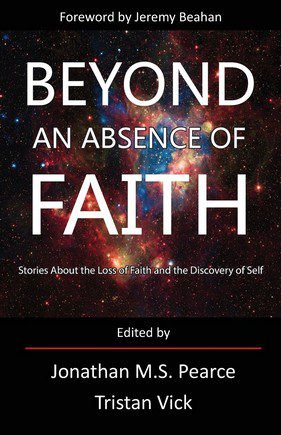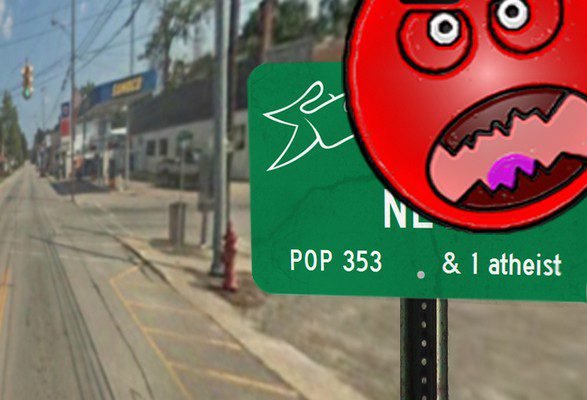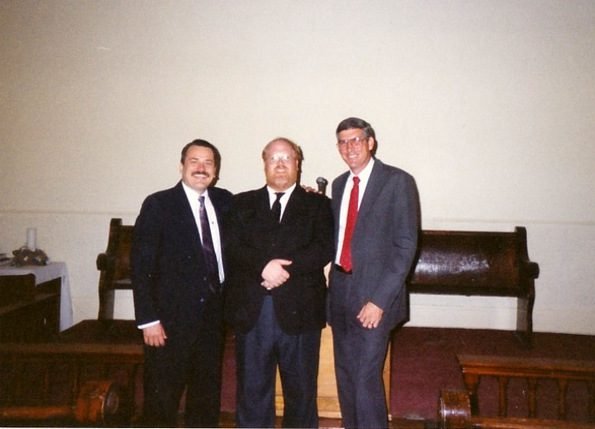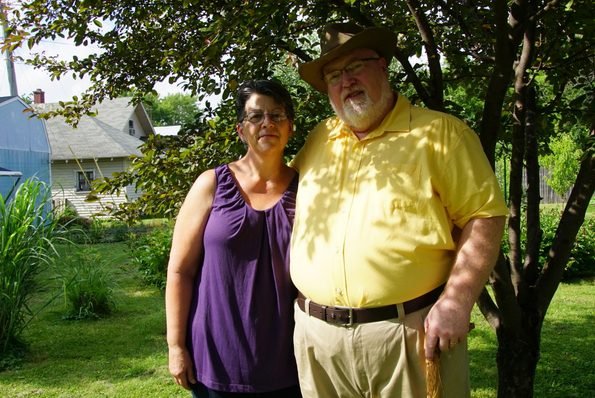
Forty years ago, a young man from the flatland of rural northwest Ohio moved to Pontiac, Michigan to study for the ministry. Also enrolled at Midwestern Baptist College was a young woman who hailed from Bay City, Michigan. What follows is their story.
The young man packed his worldly goods into his beater of a car, and waving goodbye to his Mom, drove out of the trailer park, turned east on U.S. Hwy 6 and set a course for Pontiac, Michigan. His mother had kissed him goodbye, letting the young man know how proud she was that he was the first Gerencser to go to college. He pushed her away, uncomfortable with her display of affection, a behavior he would one day regret. The young man thought, finally, away from the craziness and the drunkard husband.
Two-and-a-half hours later, the young man turned off of Golf Drive onto the driveway for Midwestern Baptist College. He stopped his car in front of the dormitory so he could unload his belongings and move them to his assigned dorm room — room 207. On that day, the young man wore a maize and blue shirt with the number 75 on the front and the word REV on the back. This shirt was a gift from a young woman who hoped the young man would remember her. He didn’t, knowing that enrolling at Midwestern would provide him ample opportunity to meet attractive Fundamentalist women. He would soon learn that a wide-open field of romance would quickly fade in the beauty of a dark-haired, beautiful young woman.
Shortly after classes began in the fall of 1976, the young man and young dark-haired woman began flirting with one another. At first, they sent flirtatious notes, often meeting up for card games in the dormitory kitchen. While both of them would briefly date other people, by the end of September, the young man and young woman decided to give dating one another a try.
They were an odd match. The young woman was quiet and reserved, rarely speaking more than a few words. The young man, on the other hand, was a talker, and opinionated. He lived life in the fast lane, serving Jesus, yet pushing the lines of Fundamentalist decorum and acceptability. Years later, the young woman would tell him that she was drawn to his wildness — her bad boy.
Midwestern Baptist College — a Fundamentalist institution founded by Dr. Tom Malone, the pastor of nearby Emmanuel Baptist Church — had strict rules concerning dating and male/female interaction. Dating couples were only allowed to date on Saturday evening and after Sunday night church. Couples were required to double-date, and all dates had to be approved by dorm supervisors. Couples were not permitted to travel beyond a ten-mile radius from the college. Coupled were not permitted to have any physical contact with each other. Breaking this rule would result in being campused — meaning that offending couples were not allowed to date off campus. Repeated infractions led to being kicked out of school.
The young man and young woman quickly found that keeping the six-inch rule — the width of a songbook — was impossible. Fearing expulsion, they sought out other dating couples that also found the no-contact rule a strain on their relationships. On date nights, the young man and young woman could now snuggle close to one another and hold hands. As with all young couples with raging hormones, their desire for physical intimacy increased as time went along. Yet, fearing being discovered and expelled, the young man and young woman — for three months — didn’t kiss.
Christmas of 1976 found the young man visiting the young woman at the home of her parents in Newark, Ohio. The young woman’s father was a preacher — a recent graduate of Midwestern. Her father was the assistant pastor of the Newark Baptist Temple — an Independent Fundamentalist Baptist church pastored by the young woman’s uncle, Jim Dennis.
One evening, the young woman’s mother asked her to retrieve their clothing from the laundry room. The young man followed along, and it was there, in an apartment laundry room, the young couple kissed one another for the first time. Many kisses would follow, but neither of them would ever forget that one brief moment where they were able for the first time to express their love for one another.
Love for one another? Yes, their relationship quickly moved from casual to serious, culminating in the young couple’s engagement on Valentine’s Day 1977. A quarter-carat diamond engagement ring was purchased from Sears and Roebuck for $225, sealing their commitment to marry in July of 1978. Little did they know that the young woman’s mother would do everything in her power to foil their plans, going so far as to tell her daughter that she forbade her to marry the young man. He comes from a divorced family, her mother said, and divorce is hereditary.
After a year of pressuring the young couple to abandon their plans, the young woman’s mother relented and consented to the wedding — not that she had any other option. For the first time, the young woman stood up to her mom, telling her that she planned to run off and get married if she continued to oppose her marriage to the young man.
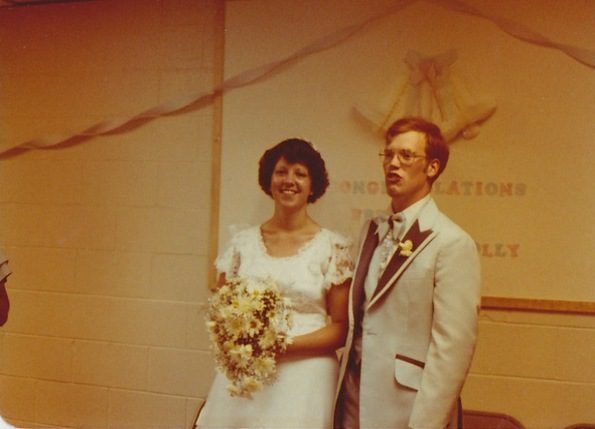
July 15, 1978, was a hot and humid day. There was no air conditioning at the Newark Baptist Temple, not that this mattered to the young couple. Their special day had finally arrived, the day when they would become Mr. and Mrs. Bruce Gerencser. Their friends from college, along with family members and church members, filled the pews to witness the joining of the young man and young woman in holy matrimony. Songs were sung, vows were exchanged, and then, with a kiss for luck, they were on their way, innocent of where their life together would take them.
Six weeks after their wedding, the young man came home from work and was met with the news, I’m pregnant. Nine months later, the first of the young couple’s six children was born in Bryan, Ohio. After almost three years at Midwestern, the young couple was forced to drop out of college and move to the Bryan – the birthplace of the young man. This would be the first of many moves for them. Over the next thirty-eight years they would move numerous times, living in dozens of rental houses.
Life was not easy for the young married couple. Ignorance about how to manage money quickly led to all sorts of problems. Years later, the young man, now a seasoned Baptist preacher, would remark, it took us a few years to figure out that you had to pay the electric bill to keep the lights on. They faced numerous problems, wondering if their marriage would survive – thus proving the young woman’s mother right: divorce is hereditary. Survive they did, and here on July 15th they will celebrate their thirty-eighth wedding anniversary.
The young couple walked out of the Newark Baptist Temple, cheered on by family and friends — two innocents wondering what fate would hold for them. Six children, one with Down Syndrome. Poverty. Moves to Michigan, Texas, Arizona, and Ohio. Bankruptcy. Health problems. Constant struggles to survive, living on poor wages and food stamps. Leaving the ministry and losing faith. Yet, despite stresses that often cause marriage failure, the commitment and love of the young couple endured. Seasoned by adversity and failure, the pair — now nearing their 60th birthdays — continue to honor the vows they made to one another years ago.
Later today, the ageing couple will celebrate their wedding anniversary with a meal at a fancy restaurant and a night of watching races at a local dirt track. They will make jokes with another, promising hot, torrid sex before the night is over. And more than likely, once they arrive home, they will each give the other the look, the one that says, I’m tired, maybe tomorrow. Climbing into bed, they will turn to one another — just as they have thousands of times before — and say, I love you. The young woman, now with gray hair and weathered skin, will quickly fall to sleep, leaving the young man to his thoughts; thoughts of a well-lived life, of love and commitment and adversity and failure. But thoughts, most of all, of the fact that he is the luckiest man alive.
Soon the young man — now with a white beard and failing health — will gently run his fingers through his sleeping love’s hair, pondering the life they have shared together. His mind will likely return to a basement laundry room and the moment where he realized that the young woman in his embrace was his one and only. Forty years later, she remains not only his wife and lover, but also his best friend and confidante. Life is good, he will say to himself as he drifts off to sleep, hoping that come morning he will have one more opportunity to say, I love you.

